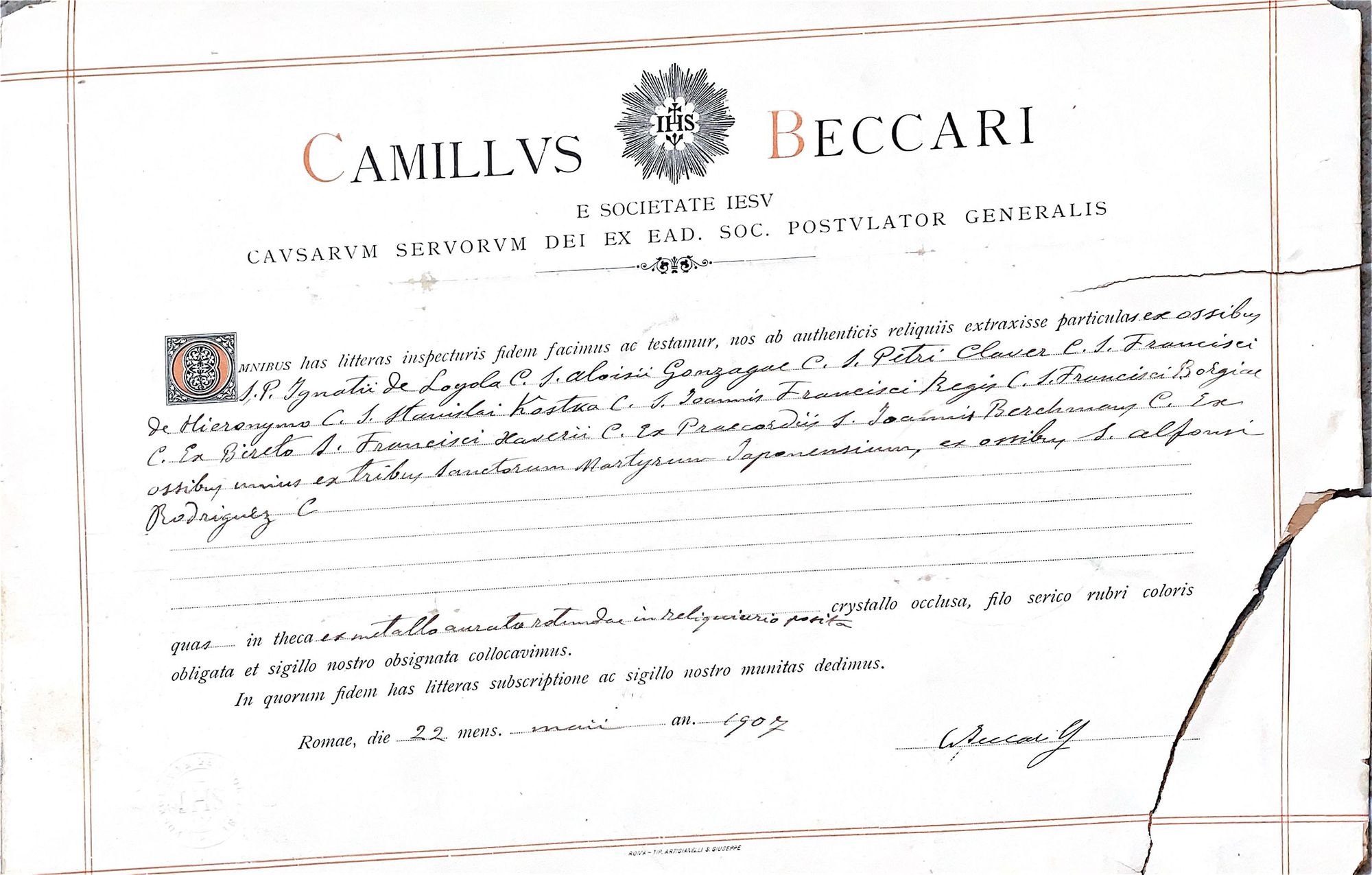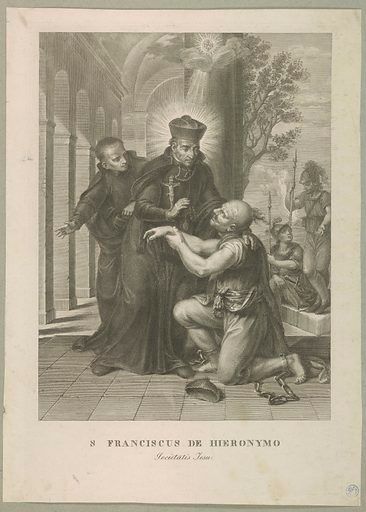Francis Gerome never traveled far from his birthplace near Taranto in southern Italy, but his years of ministry in Naples had more than enough drama. The oldest of 11 children of the De Geronimo family, he moved in with the Theatine Fathers around age 10 so that he could pursue studies. He also accompanied the Theatines as they gave missions in the surrounding towns. Because he wanted to become a priest, he studied the classics and philosophy at the Jesuit school in Taranto and then transferred to the college in Naples to study civil and church law. The Jesuits hired him as a prefect for the sons of the Italian nobility studying in their school. After being associated with the Jesuits for many years, Gerome finally entered the novitiate in 1670 at age 28.
The young priest spent only one year in the novitiate before going to the diocese of Lecce to assist another Jesuit give retreats and missions. He returned to Naples after a few years to prepare for his final theology exam which he passed in spring 1676. His first permanent assignment was the ""Naples mission"" which he served for the next 40 years. He worked with the sodality of artisans who met in the chapel beneath the Gesú church. He also preached in city squares or on busy thoroughfares as he promoted monthly Communion. In addition he visited slaves and prisoners in the galleys in the Bay and cared for them however he could. He also visited the sick night and day.
Gerome initially experienced great success in his ministry, but then met suspicion and jealousy which led to a severe restriction of his ministry. Some thought that a priest who preached in the streets and dealt with sinners was not fit for giving retreats to priests and nuns striving for perfection. The archbishop prohibited him from preaching in the streets until he learned that the complaints against Jerome came from jealousy; eventually he renewed the Jesuit's faculties. Then Jesuit superiors restricted Father Gerome's activities because they took too much time from community life. The provincial finally relented and gave Gerome free reign to minister to the Neapolitans, which he did from 1694 to 1702. In that year he began devoting half his time to missions outside Naples. People responded to his simple and earnest sermons. When he fell ill from pleurisy, he spent his last two months in bed slowly weakening and died at age 74, having been a Jesuit for 46 years.
I am still searching the collection for the relic that matches the document from 1907 shown below with many Jesuit Saints

Credits:
Discriptions of saints lives and biographies have been excerpted, summarized, or compiled from
Franciscan Media,
CatholicSaints.Info,
Catholic Online, and
Wikipedia.
